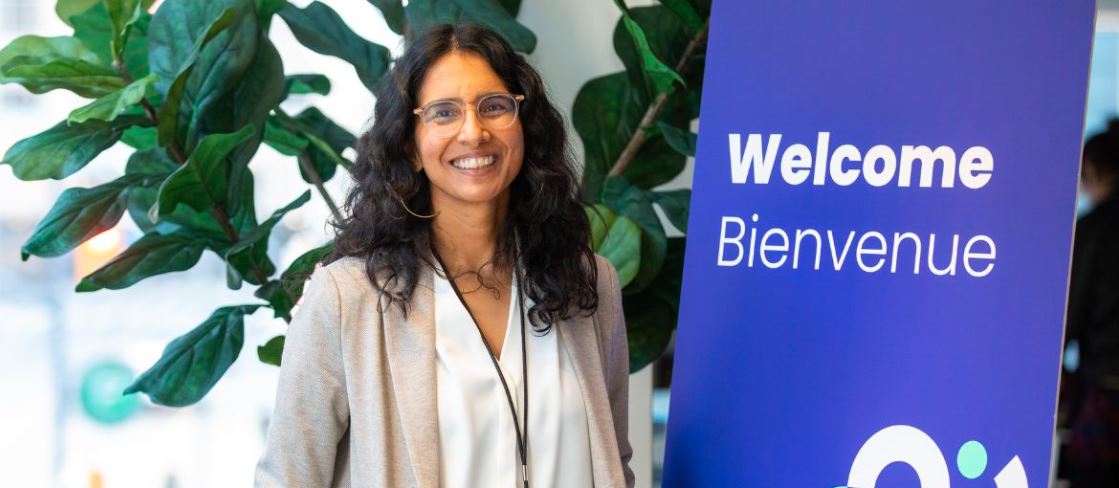Editor’s note: This interview with Tara Kiran, the Fidani Chair of Improvement and Innovation at the University of Toronto and the lead in the OurCare project, was first published in MedicsVoices.
Tara Kiran: What I love about my job is that it gives me the freedom to think big about what it is that we need to do to make our Primary Care system better and work for everyone.
I spend some of my time at the University of Toronto overseeing the Quality and Innovation program at our Department of Family and Community Medicine.
So, what do we do there? We try to support our teams to measure and improve quality of care. We have 14 Family Medicine teaching units in the Department of Family and Community Medicine, all varying in size and location but we now run the same patient experience survey and we do it in the same way, and our department helps to coordinate all of that, analyze the results, and gives it back to the practices to make it easier to understand what they’re doing, the type of care they’re providing for patients, and how they could do better.
Patient experience is one kind of data that we work with. We also work with electronic medical record data and data from administrative sources that we try to give back.
Another big focus for us is capacity building; we want people to have the knowledge and skills to improve quality in their practice. So, we do a lot of teaching of quality improvement, but we also teach more broadly in continuing professional development. We’re thinking about how people keep up to date on a long-term basis. We’re starting to experiment with ideas like peer-to-peer coaching for example, and we’ve also started to do more forums for family doctors across our province. When COVID began, we started hosting, together with our partner the Ontario College of Family Physicians, a bi-weekly virtual series called the COVID-19 Community of Practice for family doctors. Every two weeks, we now have anywhere from 600 to a 1,000 family doctors join our webinars to learn about the latest on COVID.
A big part of it is learning from each other so it’s become a safe space for people to share their own knowledge and gain knowledge from their peers.
MedicsVoices: Let me take you back a little because you have a lot of experience with Indigenous populations and this is something that is particularly important in Canada. Tell me how that’s influenced your own career.
TK: Trying to advance equity and close equity gaps has been a running theme in my career. It started with me trying to do that as a practicing clinician; I worked in many community health centres in inner city Toronto that worked with more marginalized populations. I also worked in many remote and rural communities, including First Nations reserves in Northern Ontario, as well as Indigenous communities further afield. And I think that shaped my own thinking and ways of understanding health early on and it led me to want to do more.
I ended up doing a Master’s in Public Health that allowed me to understand the concepts of health equity and influence them. I acquired skills in Health Services Research and, in the beginning of my research career, a lot of my work documented inequities between groups.
Moving forward, I’m trying to do more and more, to go beyond just documenting the inequities but trying to close them. And I’ve learned a lot over the last 10 years about how much I don’t know about our own history in Canada when it comes to Indigenous people. When I think about the work that I did with Indigenous people as a young clinician, I think about so much of my own ignorance of the history and legacy of colonialism, and how it shaped the health of the people that I was serving at that time.
Since then, I’ve had the opportunity to take part in Indigenous cultural safety training and learn through other ways that have changed the way that I understand the issues. And what I’ve learned also is that for us to really address it, it’s about me being an ally and trying to amplify the voices of Indigenous colleagues and populations that I work with and serve; working with them to support them to have self-determination about the solutions that would work for their communities.

